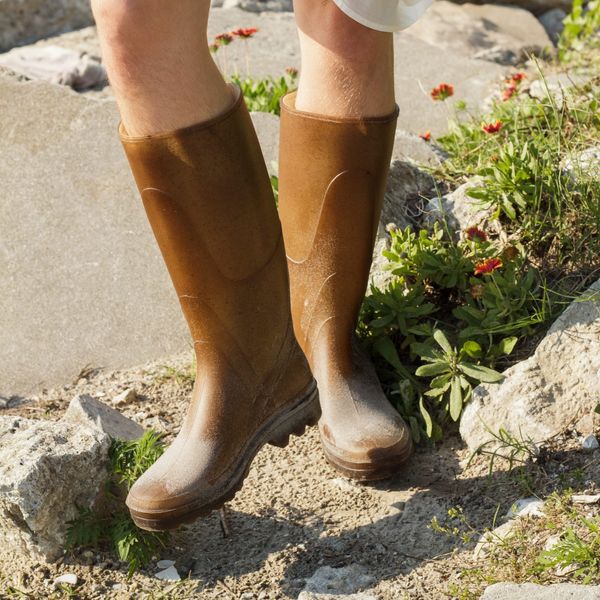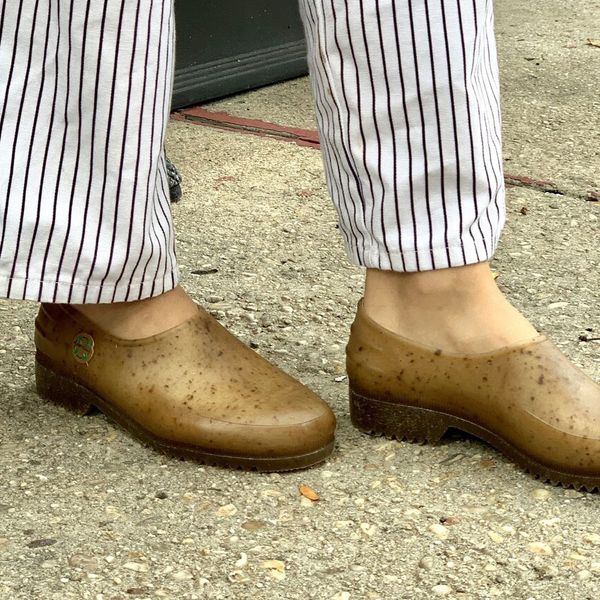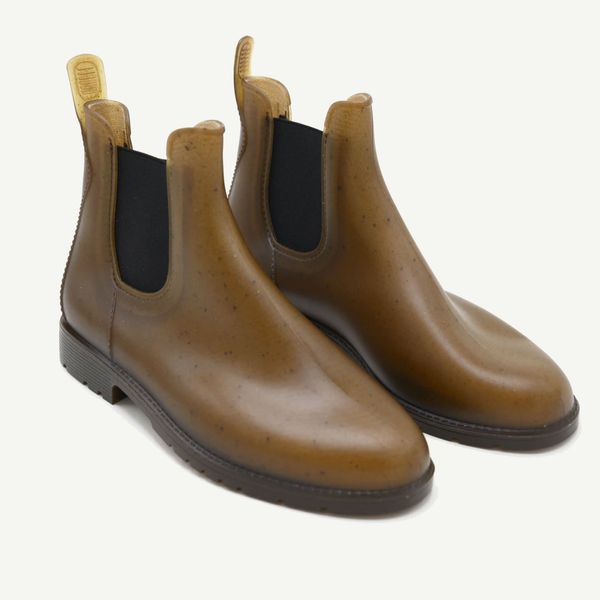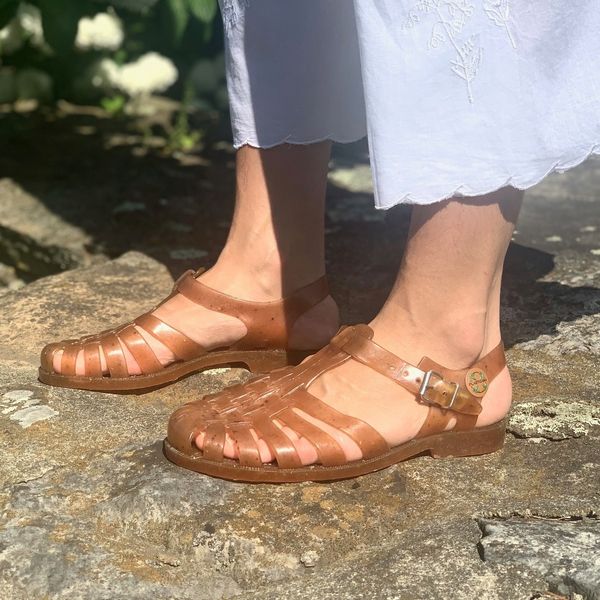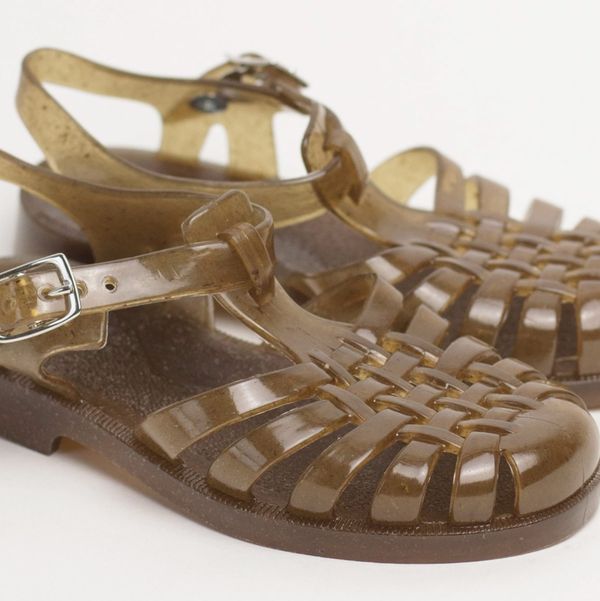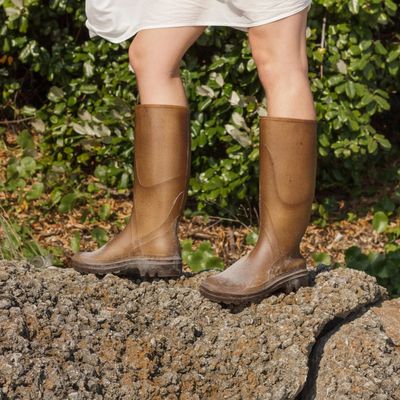
In college, needing rain boots, I fell on the English brand Hunter, originator of the Wellington in 1856 — and Hunter Wellies had my troth until a couple of years ago, when I hit on an unsung French brand with an ancient website.
Plasticana was founded in 1998 by the environmental “poet” André Ravachol, who’d hired a lab to help him develop a way to mix recycled vinyl with hemp to make an alternative plastic. Hemp, let it be known, is better than trees at sequestering carbon, and the European Industrial Hemp Association points out that the plant grows at a gallop, “making it one of the fastest CO2-to-biomass conversion tools available to us.” Ravachol took his ecofriendly material and applied it toward a line of unisex waterproof footwear: jelly-style sandals, mules, clogs, Chelsea boots, and country boots, all wholly recyclable.
The Wellies are both lighter — but not flimsy — and less expensive than a full-priced rubber pair of Hunters (which are lined in nylon). They observe that gentle pinch at the ankle, for a secure fit, and they are especially comfy with woolen socks and felted-wool or sheepskin inserts during the winter. I have trotted all over rainy Paris, in the muddy countryside, and along Norman seashores in mine. (Pro tip: Maintain Plasticana Wellies with linseed oil.) To boot, I love the look of Ravachol’s trademarked hemp plastic: It’s caramel-toned, like the fired sugar on crème brûlée — which tracks, because Plasticana’s color comes from the cooking of the sugar in the hemp fiber. How can I nail this? It’s a shade of barn-owl wing. It recalls freckly ’shrooms.
The brand’s rising star is worth plotting. While I scored my Plasticanas from a family-run e-shop in Northern France, Salter House now carries most of the brand’s models, including its Wellies and their jellies for kiddos. Carson Salter had clocked Plasticana back in 2013, and he and his wife-partner brought them to the States and were long the U.S.’s sole retailers. Of recent, however, I have been seeing Plasticana stocked by — and often sold out at — small, smart boutiques in Europe, the U.S., Canada, and South America, with tastemakers nodding to the clogs at GQ and the sandals at FT (not to mention the Strategist). This is owing to the fact that Emily Bode, the creative director of Bode menswear, sent some models down the runway last January, for her FW20 show, in the made-in-France clogs and sandals. She’d discovered them via Salter, a friend since high school. (“Une belle reconnaissance,” said Ravachol.)
For example, Deana Nguyen, owner of the Raleigh-based plant-design shop Feature Flora, told me she’d ordered 90 pairs of the “Gardana” clogs earlier this summer after noticing them tagged on Bode’s Instagram. Nguyen had placed an order for another 180 pairs right before we spoke. Like me, she and her customers appreciate a chaussure that can go from the garden to everywhere else with functionality and funk, and favor for the earth on which we trespass.
There is just one note: Plasticana — which was sold to the group that owns Méduse — does not run true to size. I had to exchange my Wellies for a smaller pair. Women often have to go down a couple sizes, whereas men often have to go up — but this depends on the model, since sizing is inconsistent across styles. One of Nguyen’s customers just returned her clogs, twice. “The fit is weird,” she admitted. “But they’re totally, totally worth it.” So, if you’re purchasing over the web, ask the shop seller to help you find your footing.
The Strategist is designed to surface the most useful, expert recommendations for things to buy across the vast e-commerce landscape. Some of our latest conquests include the best acne treatments, rolling luggage, pillows for side sleepers, natural anxiety remedies, and bath towels. We update links when possible, but note that deals can expire and all prices are subject to change.
